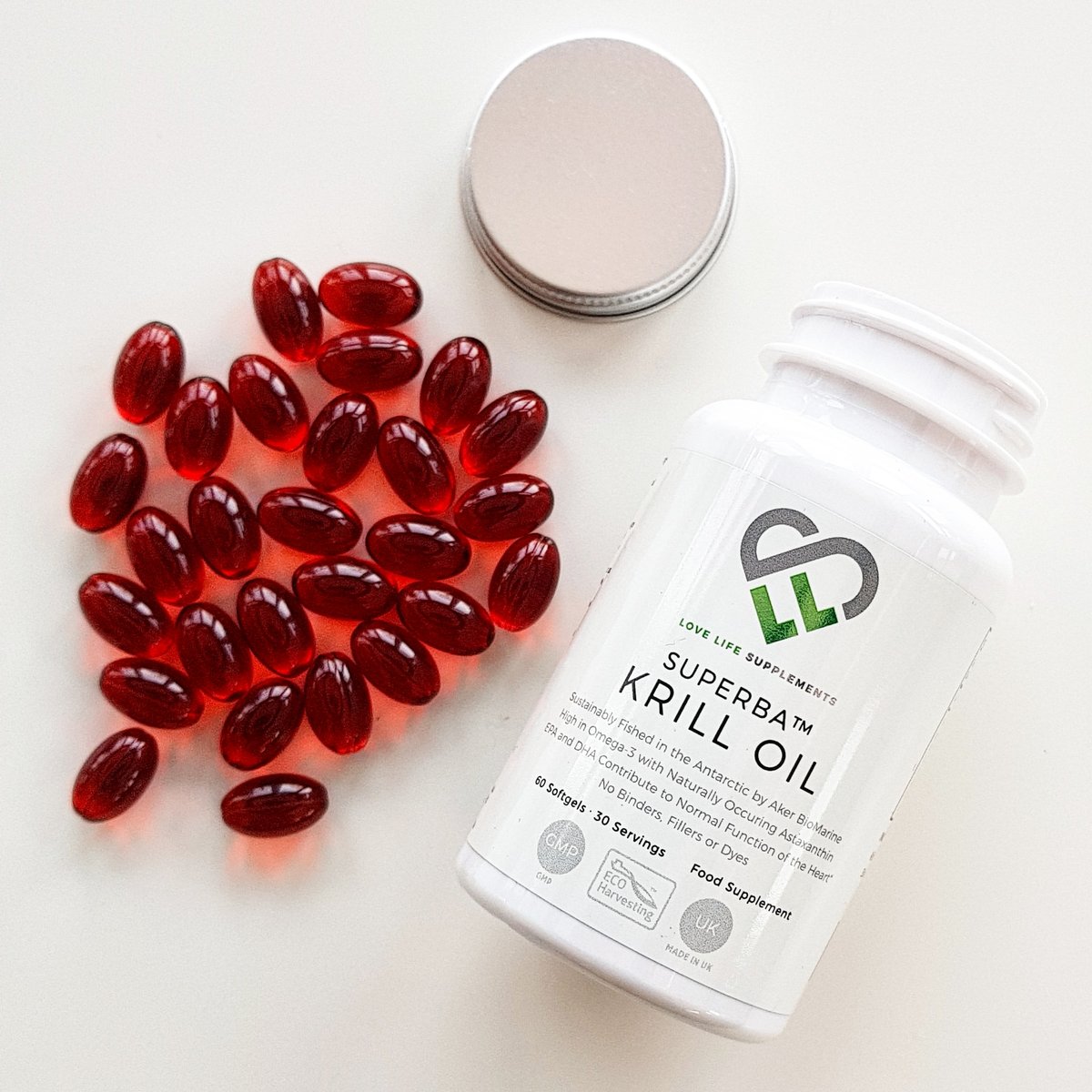
There’s a seemingly endless battle in the western world to overcome fatigue, stress, and disease.
Our food used to give us plenty of energy. It sustained our physical, mental and emotional well-being. It enabled us to carry out daily tasks without the need for a vending machine chocolate bar and a double-shot coffee at 3pm.
So what’s happened to us? Why are we now faced with much higher risks of stress, disease and inflammation, even though there’s so much choice and an ever increasing array of ‘health food’ on offer?
The Ratio of Omega Fatty Acids
Much of this is to do with the fact that what we’re consuming now is radically different to what has historically kept us going. Specifically, the ratio of omega 3 to omega 6 fats in the typical western diet.
Omega 3s are among the healthiest fats we can possibly consume. They are essential for brain development in growing children, and we need them in order to maintain normal brain function as adults.
Omega 3s also help to maintain good mood levels and memory, and reduce the body’s level of inflammation. They’re also a well-known treatment for depression and anxiety, both of which contribute to low levels of constant inflammation in the body. This means taking care of our brain is just as important when recovering from aches, pains and sports injuries.
Omega 3 fatty acids can be found in flaxseed, chia seeds, grass-fed meat and greens like spinach, but fish oils (think cold water fish like salmon or krill) are by far the most effective source, since they contain more biologically active forms of omega 3s like DHA and EPA.
It is these two fatty acids that are responsible for binding to the walls of cells. If other fats like omega 6s, saturated or trans fats bind to cell walls instead, the communication between our cells is compromised.
Omega 3 supports brain function
Just as healthy relationships depend upon good communication between people, a healthy body relies upon good communication between cells.
Hear me out: cells tell each other what to do and when to do it. They tell the body whether it’s hungry, thirsty, in pain or tired. They also help it tick over normally by keeping the immune system strong and ensuring all our bodily functions happen when they’re supposed to.
Our brain function in particular is made possible by one cell firing a message to another cell. This continues thousands of times over between thousands of cells, until the brain tells the body to perform a certain action. This could be something as simple as making a cup of tea, to something which requires more physical effort like lifting a weight or mental effort like completing a tax return. A blip in communication between cells can seriously effect our ability to live normally.
Are you deficient in Omega 3?
Fatigue, loss of physical strength and stamina, a low mood, poor memory and ‘brain fog’ are all signs of omega 3 deficiency. The problem? Many of us are not just eating far too few omega 3s, but we’re consuming a lot more omega 6 and trans fats than is healthy.
Omega 6 are good for us in moderation. You can find them in sunflower seeds, pumpkin seeds, brazil nuts and almonds. However, they’re also used in hydrogenated vegetable oils, margarine, and many fast foods like crisps, fries, junk food, burgers, cakes and pastries.
What was previously a 1:1 ratio of omega 3 to omega 6 in our diets has since come closer to a 30:1 ratio of omega 6 to omega 3 fats [1]
No wonder we sometimes feel like rubbish.
Trans fats and saturated fats contribute to high cholesterol, inflammation and unstable insulin levels [2] (think mood swings, diabetes, weight gain and heart disease). Omega 3 fats work to reverse these symptoms.
Many of the world’s ‘blue zones’ - the parts of the world which are known for having populations that thrive happily and healthily well into old age and have a good quality of life - state that a large proportion of their diet is made up of omega 3 fats. They consume plenty of fish and fresh vegetables. [3]
Why do we see fat as a bad thing?
Conversely, some of the places poorest in health hardly consume any of these essential fats. When the term ‘fat’ became a feared word somewhere back in the 1980s, processed and ‘reduced fat’ foods started taking the place of whole, organic foods - especially those containing healthy fats. A legendary 1984 TIME Magazine issue came to the conclusion that after $150 million spent on research (the most expensive in medical history at the time), fats and cholesterol were a very bad thing.
As a result the supermarkets started stocking high-carb low-fat products and no one ate eggs or steak without feeling guilty for about twenty years. Fast forward to 2014 and TIME Magazine produced a cover which in very large print read: ‘Eat Butter. Scientists labelled fat the enemy – why they were wrong’. [4]
Since then, good fats like grass-fed butter, coconut oil, avocado, nuts and fish have been very slowly making their way back into mainstream awareness. However, as a nation, many people are still not informed about which types we need to be consuming, and ‘fat’ is still a scary word.
From my personal experience, I’ve found that supplementing with Omega 3 Superba Krill Oil has had a huge impact on my physical and mental energy levels, ability to concentrate, mood, and ability to heal when an injury occurs. As a yoga teacher, it’s almost expected that I ‘should’ avoid all animal products in order to adhere to the moral principle of ‘ahimsa’ which means ‘non-harming’.
Generally this means not harming another living thing in thought, word or deed. Having had the experience of what it feels like to be deficient in levels of omega 3 though, I can very much attest to the fact that by not consuming what is best for us – even if it means eating animal products – we’re just doing harm to ourselves. When we’re not functioning at our own optimum level, how can we expect to be able to do our best in life and help other people? Just as a yoga teacher should not be expected to be totally vegan, a body builder or cross-fitter should not be expected to consume meat if they don’t choose to.
Consume what makes you feel good
Everyone has their own reasons for opting in or out of certain dietary choices, and whatever makes you feel your best is always going to be the best choice.
In order to feel vibrant and healthy, the brain needs to be fully functioning, and since the brain is comprised of about 70% fat, it’s important to consume some.
I’m not saying we should go out of our way to make fat the number one food group we eat – although there are many arguments in favour of a high fat diet. However, to ensure we’re consuming good quality fats, supplementing with high quality omega 3 fish oil is a great start.
Our general stress levels are far higher than they have ever been before, as are levels of pollution, which the body needs to constantly battle to detox and repair from.
Heart disease is one of the highest causes of death in the first world. In 2012, three-in-ten people in the world died from cardiovascular disease [5]. In August 2015, a study funded by the British Heart Foundation recorded that 45% of deaths in Europe were due to cardiovascular disease [6]. Underlying inflammation is a huge contributor to the aches and pains the majority of us feel every day.
Getting enough omega 3s can actually prevent all of this from continuing. If you lead an active lifestyle, there’s even more reason to consume high doses of these essential fats, since fats provide energy, and the body really needs these to reduce levels of inflammation and repair muscle tissue.
Sources:
[1] Challem, Jack. The Food-Mood Solution. Hoboken, NJ: John Wiley, 2007. Print.
[2] http://www.fda.gov/Food/ResourcesForYou/Consumers/ucm079609.htm
[3] https://www.bluezones.com/live-longer/
[4] http://healthimpactnews.com/2014/time-magazine-we-were-wrong-about-saturated-fats/
[5] https://www.bhf.org.uk/~/media/files/publications/research/2012_chd_statistics_compendium.pdf [6] https://www.bhf.org.uk/research/heart-statistics



